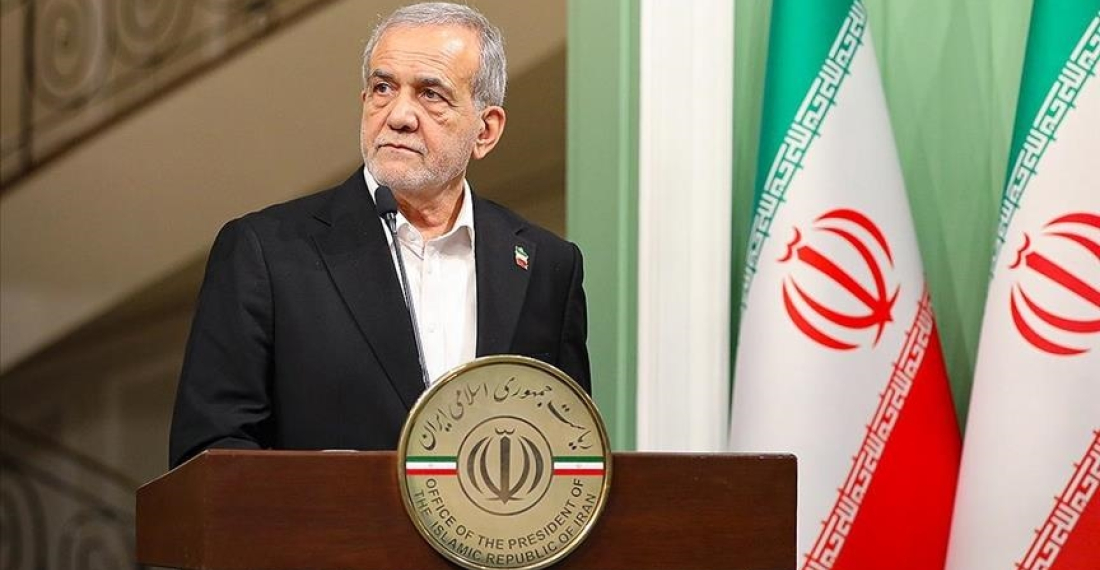Tehran will rebuild its nuclear facilities "with greater strength", Iran's President Masoud Pezeshkian told Iranian state media adding that the country does not seek nuclear weapons. U.S. President Donald Trump has warned that he would order fresh attacks on Iran's nuclear sites should Tehran try to restart facilities that the United States bombed in June. Pezeshkian made his comments during a visit to the country's Atomic Energy Organization on 2nd November during which he met with senior managers from Iran’s nuclear industry.
"Destroying buildings and factories will not create a problem for us, we will rebuild and with greater strength," the Iranian president told state media, according to Reuters. In June, the U.S. launched strikes on Iranian nuclear facilities that Washington says were part of a program geared towards developing nuclear weapons. Tehran maintains that its nuclear programme is for purely civilian purposes. "It's all intended for solving the problems of the people, for disease, for the health of the people," Pezeshkian said in reference to Iran's nuclear activities.
Meanwhile, Iran's Supreme Leader Ayatollah Ali Khamenei said on Monday 3rd November that cooperation between Iran and the United States is not possible as long as Washington continues to support Israel and to maintain military bases and interfere in the Middle East region.
Khamenei's comments came as President Trump's administration seeks to increase pressure on Iran. "The Americans sometimes say they would like to cooperate with Iran. Cooperation with Iran is not possible as long as the U.S. continues to support the accursed Zionist regime, maintains military bases, and interferes in the region," Khamenei said, according to state media.
Trump said in October that the U.S. is prepared to make a deal with Iran when Tehran is ready to do so, saying: "The hand of friendship and cooperation with Iran is open." The two countries held five rounds of nuclear talks, prior to a 12-day ear between Iran and Israel in June, which Washington joined by striking key Iranian nuclear sites.
Talks between the two sides have faced major stumbling blocks such as the issue of uranium enrichment on Iranian soil, which Western powers want to bring down to zero to minimise any risk of weaponisation, a plan that Tehran has rejected.
On another note, AP reported on 3rd November that Iranian security forces arrested three critics of the government, summoned another and confiscated their electronic devices. Iranian news outlets, including the private, pro-reform Shargh daily, said that security forces in separate operations raided the homes of journalist Parviz Sedaghat, 61, Mahsa Asadollahnejad, a sociologist, and Shirin Karimi, a translator.
The Shargh report said authorities confiscated electronic devices of Mohammad Maljou, a 53-year-old economist, and summoned him to appear before security officials. It said there was no information about Maljou after he willingly left his home to appear before the security body. Reportedly the four are leftist critics of the Islamic Republic’s theocratic system of government. This is the first collective detention of leftist researchers in recent years. However, the country has a long history of arresting dissidents
There were no immediate reports on the arrests by official and semiofficial media in outlets Iran. Maljou, in his latest post on Telegram, urged people to oppose the country’s “war and isolation” and work to dissolve Iran’s “undemocratic” theocracy.
During the 12-day air war with Israel in June nearly 1,100 Iranians, including dozens of military commanders and nuclear scientists, were killed. The U.S. also bombed Iranian nuclear facilities during the war. Iran has seen its economy collapse further into the red this year but its theocracy so far hasn’t taken any major action to halt the slide.






